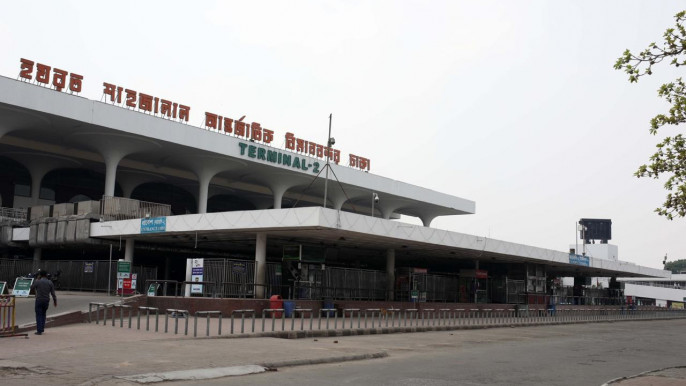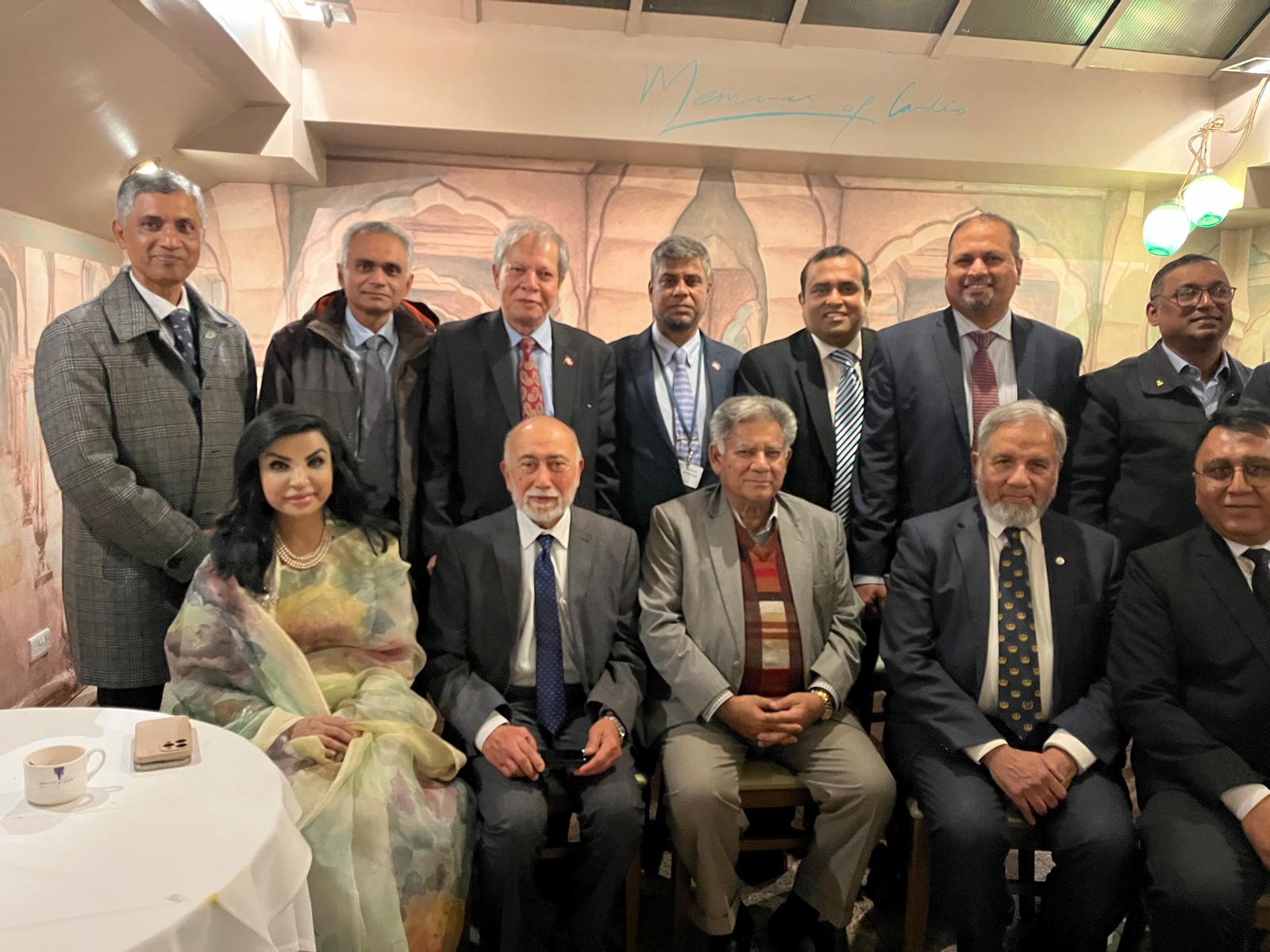search the site
Duty or extortion? Returning Bangladeshis face airport ordeal

For countless Bangladeshis, a trip abroad often means returning with small comforts: bottles of shampoo, soap, children’s shoes, or food. Expatriate workers often send these items home through fellow Bangladeshis.
However, this seemingly common practice often turns into a costly ordeal at Hazrat Shahjalal International Airport. Customs officials allegedly latch onto these harmless items, especially when carried by returning expatriates, to extort money.
For example, Rashedul Islam, a migrant worker in Qatar, recently sent a package containing personal items — soap, shampoo, children’s shoes, toys, and dates for Ramadan — for his family through Zaman Hossain, a fellow Bangladeshi traveler from Munshiganj. It was a simple gesture, a small token of care.
When Zaman arrived in Dhaka on Wednesday morning [26 February], customs officials quickly intervened, labeling his items as commercial imports. They imposed a Tk 20,000 duty on goods valued at Tk 25,000, and when Zaman refused to comply, they confiscated the items.
Business leaders have said that this is not an isolated case. The unchecked power of customs officials has turned airport arrivals into a target zone — not just for passengers but also for importers. Many traders are left with the difficult choice of paying excessive bribes or facing exorbitant taxes on their goods.
‘Form of unofficial tax’
Experts point out that, according to existing baggage rules, there is no legal basis for seizing such items. They view this as a clear case of harassment — a form of unofficial tax used to extract illicit income.
Md Lutfor Rahman, a former NBR customs member, told TBS, “The amount [of goods carried by Zaman] may seem small, but depriving someone of their legal rights is no trivial matter.”
He also warned that such practices are widespread, particularly affecting expatriate workers, and could undermine the interim government’s efforts to make airports more passenger-friendly.
“Customs is providing an opportunity for legal money laundering. The NBR could verify and assess at the actual price, but it is not doing so,”
Solaiman Parsee Faisal, CEO of Faisal Polymer Industries Ltd
Why label personal items as commercial?
In the official written justification for seizing the personal goods carried by Zaman, customs officials labelled them as commercial items, a copy of which was obtained by TBS.
The document stated, “The passenger’s actions, particularly passing through the green channel without declaring any baggage, appeared suspicious to the officials. Upon scanning, 18 kg of food items were discovered.”
It further claimed that the passenger was attempting to evade customs duties, which led to the goods being seized under customs law.
“The goods were sent by an acquaintance [Rashedul] for his family and were not commercial items. After the goods were seized, I was asked to pay an additional duty of Tk19,000, but the total value of the items was only Tk25,000. That’s why I refused to pay, and they seized the goods.”
“My items were within the allowed weight limit. So why should I have to pay duty on them?” he said, adding that customs officials had opened the cartons of at least 20 other passengers on the same flight that day.
TBS has also obtained a photo of the seized items, which include children’s shoes, milk, watches, small rechargeable fans, toy cars, headache balm, baby shampoo, artificial juice powder, dates, lotion, and soap.
TBS also talked to Rashedul Islam, the person who sent the items from Qatar.
“I sent a few kilograms of dates for the family on the occasion of Ramadan, along with some household items and children’s toys. The total weight is no more than 30 kg,” he said.
According to the Airport Baggage Rules 2024, a non-tourist passenger is allowed to bring a reasonable quantity of food, clothing, household items, or other personal belongings, provided that the weight of each item does not exceed 15 kg.
Former NBR customs member Lutfor Rahman said, “There is no provision for the detention or duty collection on food and other items brought under the existing baggage rules.”
Explaining why customs officials engage in such activities, a former customs official told TBS, “While the salary of these officials may be around Tk30,000 (referring to lower-level staff), they can earn up to Tk3 lakh per month. Some of them are involved in such activities.”
When contacted, a senior official at the Dhaka Customs House, who requested anonymity, said, “The items in question do not appear to be commercial; they seem intended for personal or family use. I don’t understand why they were detained or why duty was imposed.”
Not an isolated incident!
The incident in question is not an isolated case, according to passengers. Zaman Hossain said that just a few days ago, someone he knows had to pay Tk25,000 in duty for bringing 4 kg of pistachio nuts from abroad.
A journalist from Chattogram told TBS that last week, his baggage was held for an extended period under the guise of a search, and he was subjected to thorough questioning.
“Although I didn’t have any dutiable or illegal goods, after introducing myself as a journalist, I was released. But had I been an ordinary passenger, I might have been harassed further,” he said.
In another instance, Md Lutfor Rahman mentioned that a person he knows had $10,000 seized by airport police while traveling to the US last Tuesday [25 February]. Despite being allowed by law to carry the amount, the incident almost caused the passenger to miss his flight. He was eventually released after presenting the relevant Bangladesh Bank circular.
Md Zakir Hossain, commissioner of Dhaka Customs House, the country’s largest airport customs station, told TBS, “Compared to the past, complaints of harassment at Dhaka Customs House have decreased significantly. We now work based on specific information, which means fewer passengers need to be checked.
“After learning about the incident with the passenger [Zaman], we’ve initiated an inquiry led by the joint commissioner, and we’ve asked the passenger to contact us on Sunday [2 March].”
Regarding the seizure of goods, the commissioner said, “While the law allows for strict application, we typically take a more lenient approach. This situation could have been handled more softly.”
Air Vice Marshal Md Monjur Kabir Bhuiyan, chairman of the Civil Aviation Authority of Bangladesh, the national regulatory body for civil aviation activities, said he is not aware of the incident in question.
“We have received complaints about one or two isolated incidents. We will investigate and take appropriate action. Often, the passenger’s complaints do not go with the facts,” he added.
Overvaluation of imported goods, HS code issues
Solaiman Parsee Faisal, CEO of Faisal Polymer Industries Ltd, an importer based in Old Dhaka, told TBS, “Currently, customs is assessing goods at higher than their actual import value, resulting in increased taxes.”
He shared his experience: “We imported industrial MS pipes at $800 per tonne, but customs officials assessed them at $1,300 — about 63% higher than the actual price. As a result, business costs have increased, and later banks are unwilling to open letters of credit without the NBR’s assessed price.”
“Customs is providing an opportunity for legal money laundering. The NBR could verify and assess at the actual price, but it is not doing so,” Parsee added.
Others have voiced similar concerns. Shamsul Haq Zahid, a member of the Newspaper Owners Association of Bangladesh (Noab), raised the same issue during the budget discussion with NBR Chairman Md Abdur Rahman Khan last week.
Samuda Spec-Chem Ltd, a sister concern of TK Group, sent a letter to the NBR chairman on 10 February, claiming that the company is being forced to pay an additional 67% customs duty and 31% VAT due to the over-assessment of its imported raw materials. This inflated customs value is causing severe financial losses for the company.
TBS has received similar complaints from three other companies.
An importer from a cosmetics company, on condition of anonymity, shared that the time required to release their goods from the airport has increased from seven days to nearly a month over the past year. They are now forced to negotiate through their C&F agent, with bribe amounts rising, allowing them to clear goods in approximately seven to eight days.
A Chattogram-based apparel exporter, on condition of anonymity, told TBS, “Even a slight mistake in the HS code or description, or sometimes even when there is no mistake, customs officials deliberately assign an incorrect HS code, causing taxes to rise. They then label it a misdeclaration and force us to pay fines of up to 200% along with additional duties.”
“Last month, we had to ‘manage’ and clear a price tag that had been held up this way. Many others face the same situation or risk fines. Yet, these products are meant for export,” said the exporter, who is also a former vice president of BGMEA.
BGMEA sources confirmed that the association has recently sent a letter to the NBR to address these ongoing issues.
source : tbsnews


















